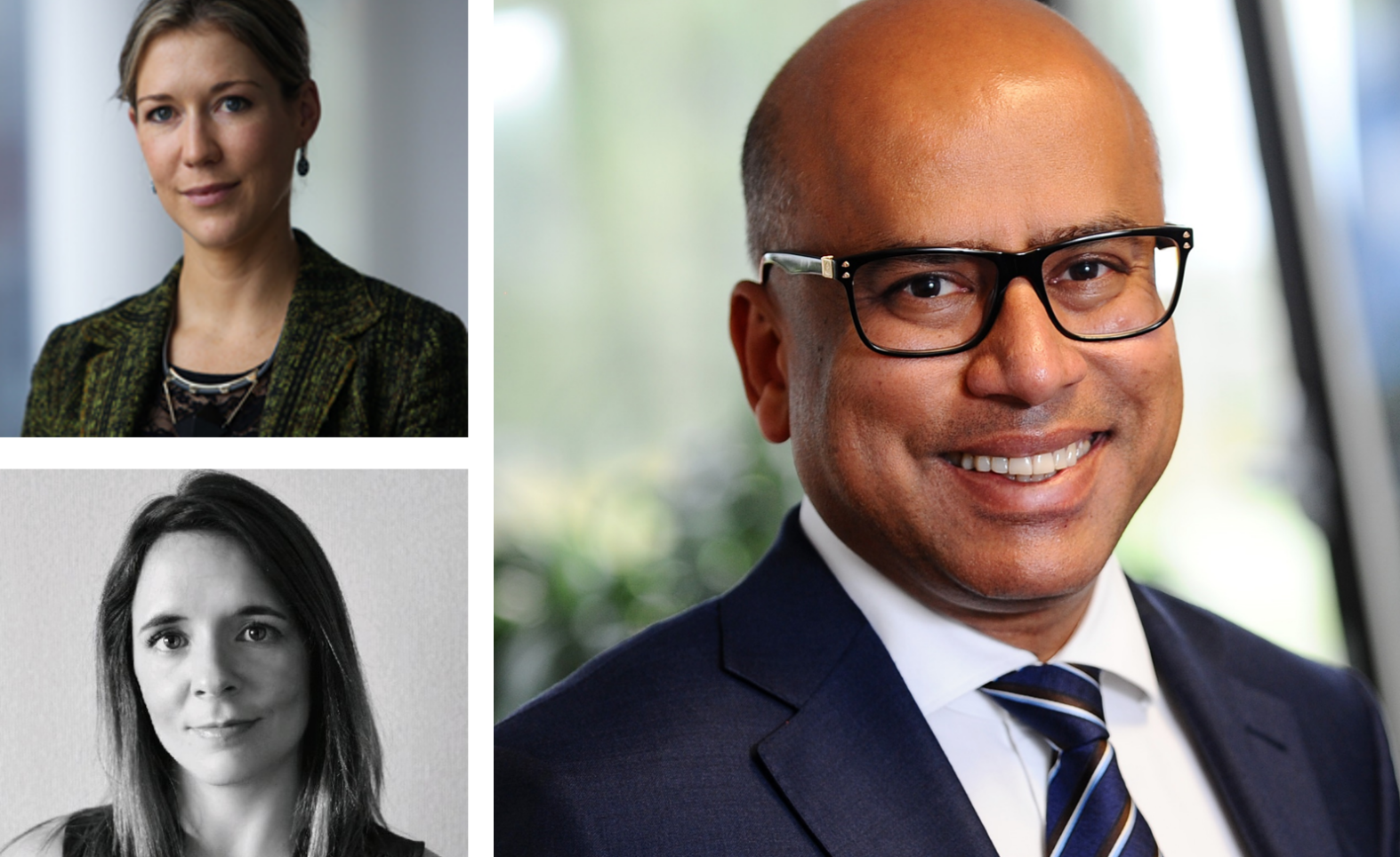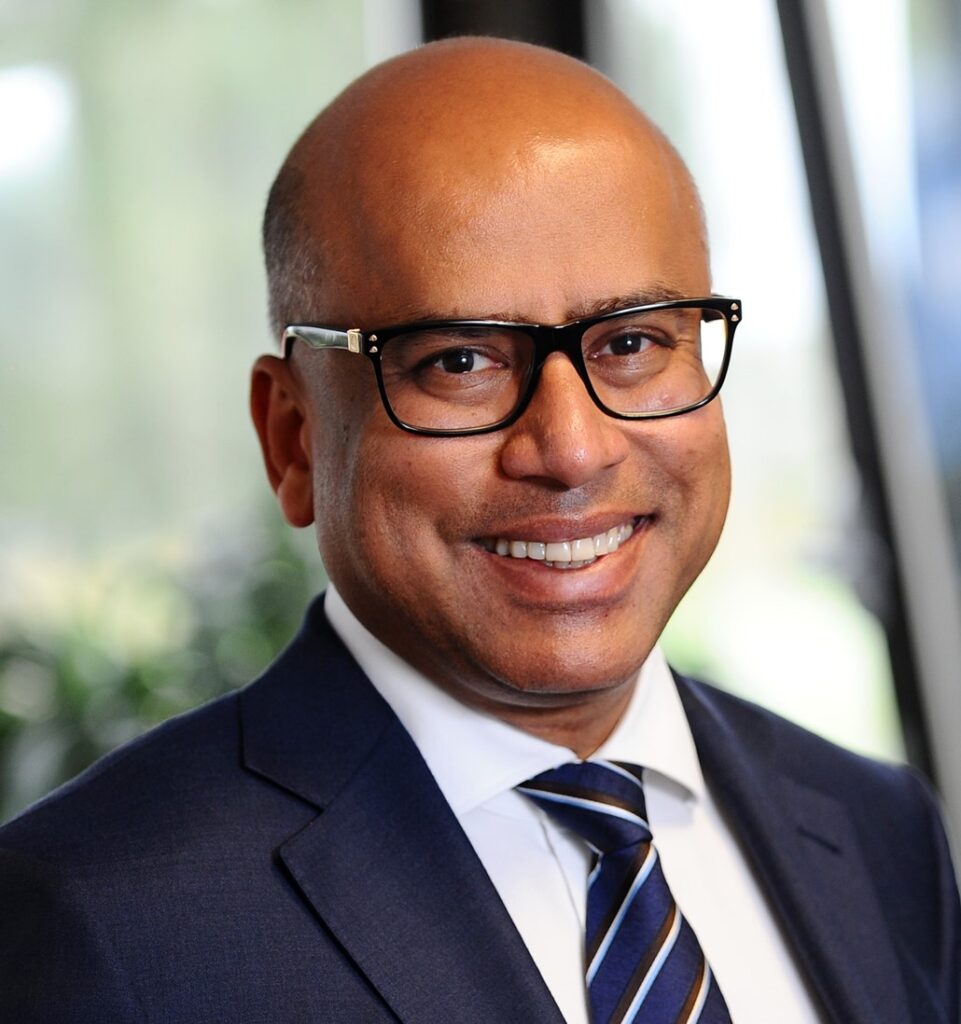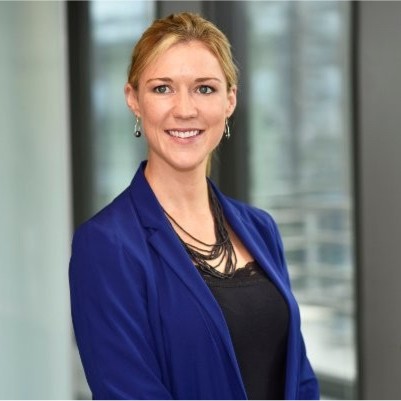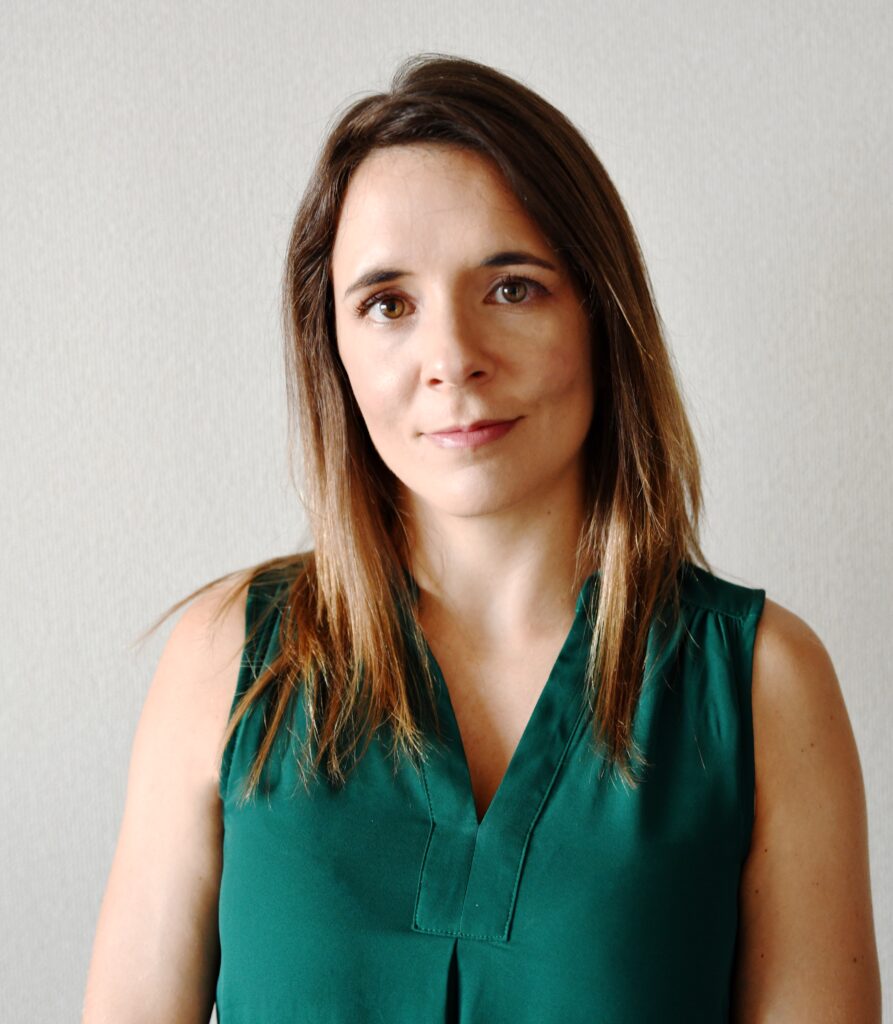Whyalla featured on hit documentary series Australian Story
In September 2018, the ABC’s hit documentary series Australian Story tracked ...

Sanjeev joins us from Australia with news of a milestone for the business. We focus on CN30 following news from the IPCC that the world is warming faster than expected. 14 mins
Check out our guests for this episode:



Show transcript
| TIMECODE | NAME | Dialogue |
| 00:00:00 | JINGLE | Spoken from GFG Alliance. |
| 00:00:04 | CHLOE TILLEY | Hello and welcome to Spoken, the podcast for GFG Alliance colleagues across the world. I’m Chloe Tilley, and this time we’ve news of a milestone for the business. Our guests are GFG’s Rita Monteiro and also with us is Marian D’Auria. |
| 00:00:18 | Now our focus for this episode is CN30 following recent news from the IPCC that the world is warming faster than expected. Decarbonisation is a topic we’ve covered previously here on the podcast. Here’s Sanjeev Gupta, Executive Chairman of GFG Alliance on Spoken back in 2021. | |
| 00:00:37 | SANJEEV GUPTA | If we are serious about the climate change and about addressing the issues in the threat posed to our planet, then I think it’s absolutely imperative that we do address the pollution. I have three kids and I know from their daily obsession how important it is for them that their planet and their future is protected, and I think it’s our responsibility now to deliver for them. |
| 00:00:57 | CHLOE TILLEY | And Sanjeev joins me now from Whyalla in Australia. Sanjeev we’ll speak about your big announcement in a moment. But first, the IPCCs 2023 climate change report is concerning. It says it’s even more urgent to get to net zero because there’s very little chance of preventing the world from warming by more than1.5 degrees celsius. How did you react when you read this report? |
| 00:01:19 | SANJEEV GUPTA | Well, Chloe, it’s basically what we’ve been saying for quite some time. Commodities which are causing carbon emissions, in particular, steel almost 10% of global emissions, are growing in demand. Demand for steel will double in the next 30 to 40 years. So, we are accelerating the rate at which emissions are intensifying and the only solution is to change the way these commodities are made. |
| 00:01:45 | Steel can be made from green hydrogen rather than from being made from coal. So that’s an answer which each one of us in our individual sectors has to find. | |
| 00:01:56 | Chloe Tilley | GFG’s CN30 goals are more important than ever and steel manufacturing, as you said, accounts for about 10% of Global CO2 emissions. How can GFG be seen to lead the decarbonisation of the steel industry? |
| 00:02:10 | SANJEEV GUPTA | Chloe we announced CN30 in 2019, now that was already a hot topic as climate change was already a hot topic then, but I think since then, in the last few years in particular, I believe that almost all the naysayers on climate change have disappeared and there is a universal acceptance that we have a real and present problem which all of us must tackle. And in our sector in steel, GFG is the leading force in decarbonisation. We will decarbonise all our steel plants within this decade. |
| 00:02:42 | SANJEEV GUPTA | We’ve already undertaken that in Czech Republic where we have Europe’s first hybrid furnaces under construction now which we’ll be able to use, which will be able to reduce our carbon footprint down to very little there. Similar initiatives are being adopted across all our projects globally. We just announced a project for a new electric arc furnace also in Whyalla in Australia. So we will definitely be a couple of decades ahead of our peers in terms of this mission. |
| 00:03:10 | Chloe Tilley | Now I mentioned you’re in Australia with news of a milestone for the business, tell us more? |
| 00:03:14 | SANJEEV GUPTA | So it’s probably the most important event undertaken by GFG. It’s got two very connected but very profound and somewhat different objectives. |
| 00:03:25 | One is we have pledged that we will decarbonise all our steel plants globally. So this investment will see us reduce carbon footprint in Whyalla by 90%. And that would take us from being the biggest polluter in South Australia to amongst the greenest. So that is firstof all in terms of CN30 it’s very much, that strategy in action. | |
| 00:03:45 | But more than that, much more than that we also announced that we are starting our first green iron project which will be based on green hydrogen, based on our vast mountain of magnetite amongst the best quality and the most competitive magnetite resources in the world. Very close to our own deep seaport. | |
| 00:04:02 | So that then allows us to start making large quantities of green iron which we could feed our electric arc furnaces around the world. So not only will we decarbonise our steel industry in Australia, but we will actually then start to decarbonise global supply chains and steel. | |
| 00:04:16 | CHLOE TILLEY | So Sanjeev, just tell us a bit more about those different types of iron ore, in particular the importance of magnetite? |
| 00:04:23 | SANJEEV GUPTA | I think in broad terms, broad simple terms, there are 2 types of iron ore. There is haematite which is what they call weather ore, and that can be made in a quality range in general between let’s say 58 and 63%. |
| 00:04:39 | It’s very difficult to make high-quality haematite because it’s clay and it’s difficult to liberate the impurities from that material because it’s soft and clay. | |
| 00:04:47 | Then you have magnetite which is generally speaking what slides beneath haematite. So the natural, what the crust is really made of. That’s hard. You can crush it. You can liberate all the impurities and we can make very high-quality iron ore. What I mean by that is you can liberate all the impurities and a very high Fe content. | |
| 00:05:06 | SANJEEV GUPTA | When you make DRI which is what you need to put into electric arc furnaces when you make DRI fit for electric arc furnaces then you need this high-quality material. So magnetite is fit for the iron into the EFs, haematite is less. It is much more difficult and much more expensive and has all sorts of other issues and so on. |
| 00:05:24 | SANJEEV GUPTA | So what you need for decarbonising iron and steel at scale using primary iron ore is really magnetite. And we have the best and the biggest reserve of that in South Australia. |
| 00:05:35 | Chloe Tilley | Now you’ve been joined by Australian government officials, how are they supporting decarbonisation efforts? |
| 00:05:41 | SANJEEV GUPTA | So the South Australian government in particular is very, very committed to the development of hydrogen and the development of green iron and green steel and for good reason because their state Whyalla being the prime of those assets but their state in general has the best attributes I would say globally in terms of the best renewables, the best combination of solar and wind anywhere in the world. The best magnetite reserves like in Whyalla. Deep sea ports, logistics. So a combination of all these things actually is not just unique, I don’t think it exists in the same combination anywhere else in the world. So they are very excited about developing green hydrogen from clean energy and then using that to make green iron and green steel and feeding the world with it. |
| 00:06:20 | Chloe Tilley | Okay, thank you Sanjeev for the moment. We will be back with you shortly. Next I am joined by Rita Monteiro, GFG’s Head of Decarbonisation. Hi there Rita. |
| 00:06:29 | RITA MONTEIRO | Hi Chloe. |
| 00:06:30 | CHLOE TILLEY | And also with us is Marion D’Auria, GFG’s Global Head of Risk and Sustainability. Hi there Marion. |
| 00:06:37 | MARIAN D’AURIA | Hi Chloe. |
| 00:06:37 | CHLOE TILLEY | Now Rita let’s come to you first, give us some examples of what GFG are doing to stop burning fossil fuels and to switch to renewable energy. |
| 00:06:46 | RITA MONTEIRO | So one of the great examples is what Sanjeev just announced, the introduction of an electric arc furnace in Australia and the phasing out of the blast furnace and the coke ovens will really help us to move away from coal burning into green energy solutions. We will do that by not just deploying the electric arc furnace but also by producing green DRI that will be based on hydrogen or green hydrogen production which will be accompanied by large-scale renewable energy deployment. |
| 00:07:16 | MARIAN D’AURIA | We’ve also seen quite a lot in Europe haven’t we, so we had the announcement of the hybrid furnace in Ostrava last year. |
| 00:07:22 | RITA MONTEIRO | Yes, yes of course. So in our transformation plan we are looking to phase out all the blast furnaces that we have currently operating and transfer them either into hybrid arc furnaces or electric arc furnace which are cousins of the same family of steelmaking production. |
| 00:07:38 | CHLOE TILLEY | Now Marion, tell us what do GFGs CN30 plans mean for the communities that you are operating in? |
| 00:07:45 | MARIAN D’AURIA | I mean that’s a pretty fundamental question Chloe and it goes to why we have the CN30 mission in the first place. And this is really about creating a steel industry that is sustainable and supports our communities for generations to come. So it’s absolutely essential we bring our people and communities with us if we are going to be successful in achieving that ambition. |
| 00:08:06 | So whilst we of course recognise that the transition might mean less labour intensive processes in some areas it will also bring a wealth of new opportunities particularly in the research, development and implementation of low carbon technologies. So if you look at the announcement in Whyalla that Rita and Sanjeev have spoken about that represents a huge opportunity to further revitalise that community. And it’s really up to us to bring colleagues with us so that we can change the face of the steel industry and attract that next generation of talent that are going to help us achieve that CN30 ambition. | |
| 00:08:41 | CHLOE TILLEY | Rita, we know decarbonisation need the combined global effort so how is the business collaborating with partners and also the supply chain? |
| 00:08:49 | RITA MONTEIRO | Great question. So in terms of the global supply chain the abundant, high-quality ore in Australia and the ability to produce large-scale green DRI will help us to decarbonise our own global supply chain but also other companies that are using steel blast furnace phase routes. So by deploying green DRI into their process they will automatically decarbonise their own process. So the ripple effect is not just on our own direct footprint but also on some of our global customers and suppliers. |
| 00:09:22 | We are also collaborating with large equipment suppliers in deploying the latest technology. We were alluding before to the electric arc furnace which is the first of its kind in Europe and also understanding what equipment makes sense in which region because regional aspects will require slightly different capabilities. Unfortunately, we don’t have magnetite resources in Europe, for example. | |
| 00:09:45 | We are also collaborating with customers so there is an increasing demand from customers to engage and purchase low carbon steel across their processes, automotive industry and construction industry are prime examples of that. But at the same time, we have also a role in advocating the customers and helping to shape that need where it not may not yet exist. | |
| 00:10:07 | Finally, we are partnering with different global SMEs through industry groups and that really helps us to bring more visibility of how the global solutions are being deployed in different regions and learn from each other. | |
| 00:10:21 | CHLOE TILLEY | Finally, a question for both of you. How can colleagues support GFGs CN30 plans? Marion? |
| 00:10:27 | MARIAN D’AURIA | Thanks Chloe. So there is that famous anecdote, isn’t there, when President Kennedy was touring NASA and he asked a janitor what he was doing and the man replied, I’m helping to put a man on the moon. And I think that really embodies the way we need to think about this mission. In some way we all have a part to play in the enormous task that we have ahead of us to achieve CN30. So any piece of work done in this area whether it’s working on the big transformation projects that Rita spoke about, whether it is fitting less energy intensive lightbulbs in a plant or whether it’s providing education to colleagues, we all really have an important role to play. |
| 00:11:05 | I think it’s also incumbent on all of us to educate ourselves about the impact that we have on the planet and our people but also the risks and opportunities that are presented by this global transition to lower the carbon economy. This is one of the biggest risk and opportunity sets that the world will ever face so it’s really important that we all understand that. | |
| 00:11:27 | Now a great place to start, I have been asked to plug the discover Greensteel programme from the GREENSTEEL Academy a fantastic set of resources around climate change, carbon fundamental. If you head over to the Yammer site, you can find a wealth of opportunities there. It’s a really exciting time I think to be part of what could be a huge transformation in the steel sector more broadly you anyway so I would really encourage anyone to start to get up to speed and become part of this. | |
| 00:11:58 | RITA MONTEIRO | There is also a small case that is currently happening in the Dubai office for example, that all the employees are getting together to ban, for example, single-use cups and plastic cups in the office, which again is a small effort but it has a huge impact in terms of your awareness to your surroundings and although a small gesture can really help to wake up other colleagues for the climate change race. |
| 00:12:20 | CHLOE TILLEY | Marion, Rita, thank you both so much for joining us. |
| 00:12:24 | MARIAN D’AURIA | Thanks Chloe. |
| 00:12:24 | RITA MONTEIRO | Thanks Chloe. |
| 00:12:26 | CHLOE TILLEY | Now Sanjeev, I imagine you would agree that the time is now. Everyone across the business, across the industry in general needs to get behind the CN30 efforts. |
| 00:12:34 | SANJEEV GUPTA | Absolutely. You know we are 20 years ahead of our peers but that doesn’t mean that others can’t catch up. And I think there is a growing consciousness here. As the tide turns everybody will join the bandwagon if I can say it like that. So I believe that time is now. I think we are leading but I encourage everybody else to join and I think everybody will. |
| 00:12:54 | CHLOE TILLEY | So Sanjeev what is next for the world journey to mitigate the risk of climate change? |
| 00:12:58 | SANJEEV GUPTA | It’s very simple. It basically depends on commitment. If human beings, if all people, all nations are committed I have no doubt we can achieve that and better. But it is a question of how much that conviction is and how that actually plays out into real investments and real policy change and real acceleration in all of these things. There’s great objectives and they have great potential, but can we do them at speed, at what speed and what scale. And how does that get enabled, you’re talking about billions and billions or tens of billions or hundreds of billions even of investment, this is not going to happen by any single company is not going to happen by any single government it’s going to need everybody to collaborate and it’s certainly going to need good partnership between the private sector and governments. |
| 00:13:41 | CHLOE TILLEY | Well finally I know that a personal highlight of the year for you Sanjeev is the Chairman’s Global Excellence Awards which recognises colleague’s achievements. You must be really looking forward to announcing the winners this year? |
| 00:13:52 | SANJEEV GUPTA | Very much. I think it’s the one event where we are able to bring all our people from all walks of life, from all countries around the world, maybe the segment which they are working in, upstream, downstream, all together. And then of course to see the different parts, see excellence at work, to see everybody really doing great things and those to be talked about, displayed and looked at and everybody to get excited about each other’s work, it’s all amazing. |
| 00:14:17 | So I think last year was amazing and I’m sure this year is going to be incredible as well. | |
| 00:14:21 | CHLOE TILLEY | Well that’s it for now but do join us again next time for the very latest news from across GFG. Until then from a Chloe Tilley and Sanjeev Gupta thanks for listening and goodbye. |
| 00:14:31 | JINGLE | Spoken, back soon. |
| 00:14:38 | End of tape. |
Leave A Reply